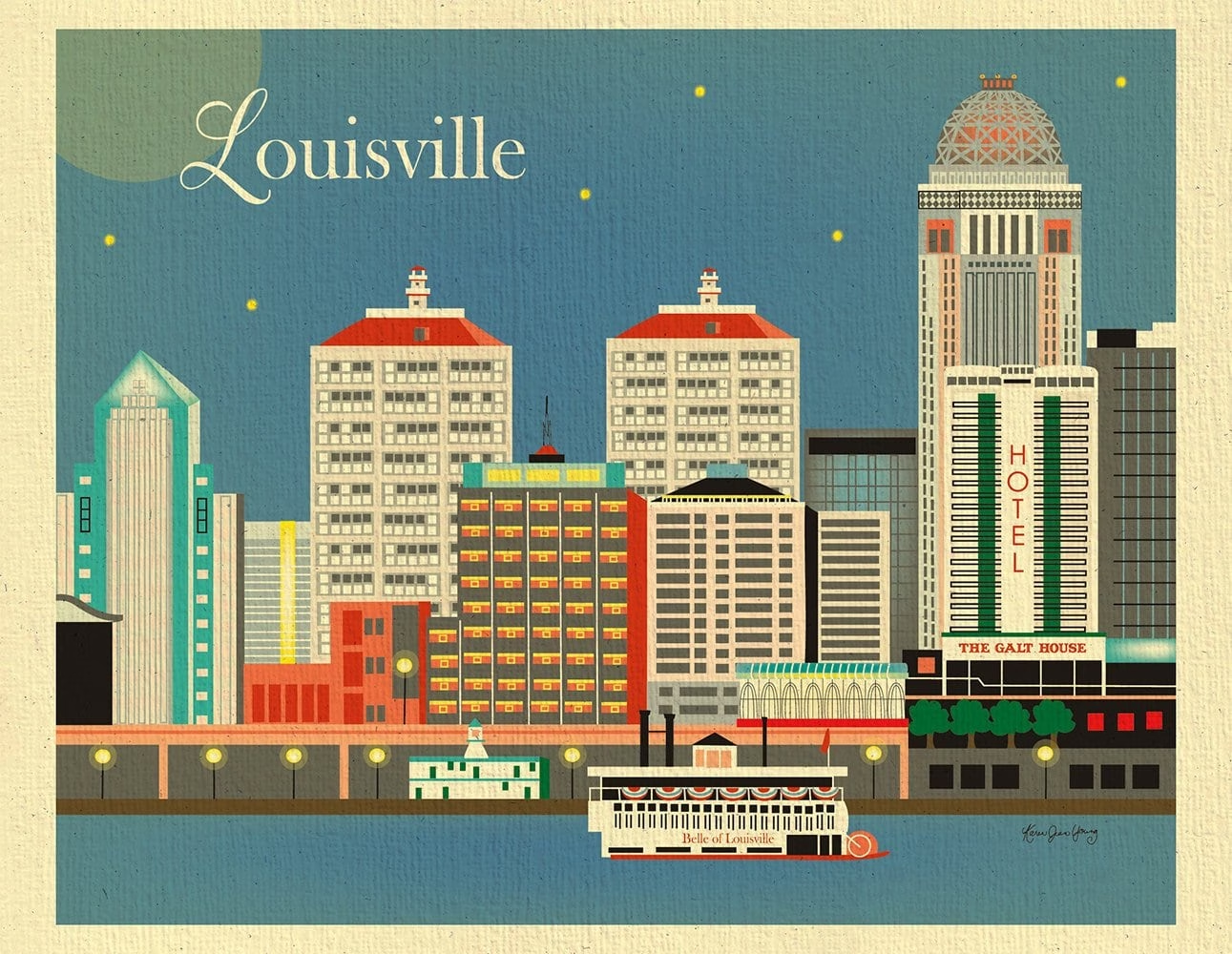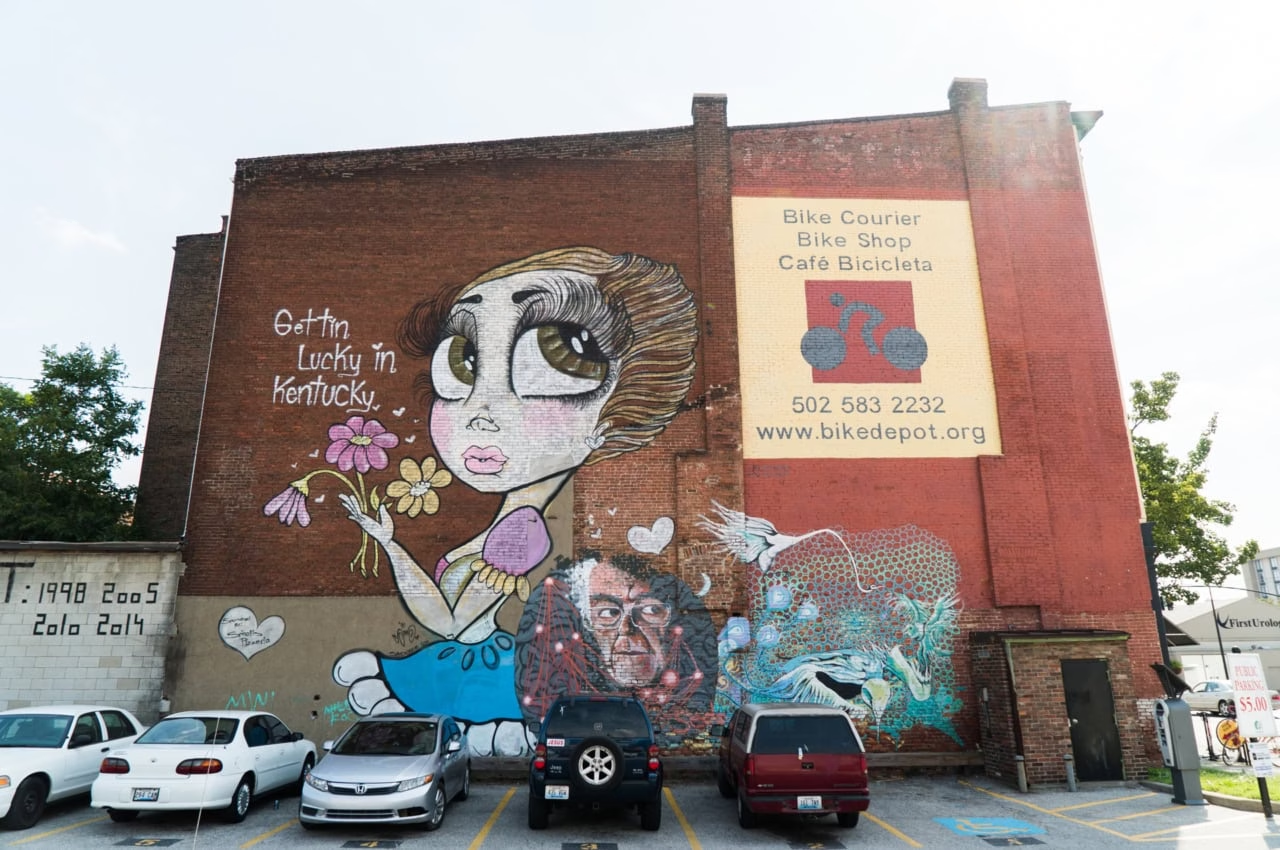Louisville art | part one
Louisville art
Louisville’s diverse and vibrant arts community incorporates active and lively theatrical actions supplied by the gifted campaign of Actors Theatre of Louisville, a Tony-Award-winning repertory theater placed in a 1837 bank building currently designated as a national historical landmark.and whose rock columned part is among the earliest buildings in Main Street and among the best examples of modest scale Greek revival structure in the U.S. Since the centerpiece of the town’s urban cultural heritage, Actors Theatre has generated considerable financial effect on a important downtown lifestyle and won high acclaim for its aesthetic programming and business acumen in sponsoring the yearly Humana festival of plays that have gone to New York and London and other innovative stage productions. It presents roughly six billion performances of roughly twelve productions throughout its yearlong season, composed of a diverse collection of modern and classical cuisine bringing among the biggest per capita subscription crowds in the nation with an yearly attendance of over 200,000.
Shakespeare’s plays are always being staged in the Central Park in South Fourth Street thus transforming Louisville to the Bardstown in summertime. But sadly we overlooked Shakespeare when we trouped down from our Kurtz Hall homeup the street one day and waited for the players. Walden Theatre, the top theater conservatory for young men and women in the U.S, among the few yearly theater festivals celebrating William Shakespeare from the yearly Young American Shakespeare Festival, that are often presented in the Kentucky Center the 3 phases of that are constantly living with entertainment from Broadway into Bach and comprising bagpipes into bluegrass. Five big arts teams delight the senses with dancing, music theater, play and much more while its mirrored outside representing the surrounding town. Founded in 1983 the centre has multiple performance places for its globally famous Louisville orchestra renowned for its records of modern works, the Louisville ballet and Kentucky Opera that’s the funniest earliest opera at the U.S., the Broadway Series, Stage One, The Louisville Children’s Theatre and outstanding local, national, and global talents.
Pictures Friedonas Gallery features Julius Friedman’s posters in addition to works by several other nationwide and globally respected artists. This 10,000 square ft gallery at the Louisville Design Center, situated in the Caribbean resort and entertainment district, features many concerts and plays. The Louisville Palace, the official place to the Louisville Orchestra, is an elegant, intricate theater in downtown Louisville’s so-called theater district. Along with orchestra performances, the theatre includes a range of popular films, new and old, in addition to concerts by popular artists. Situated nearby is the Kentucky Theater, which was constructed in 1921 and worked for 60 years since a film house, but has been shut and nearly demolished in 1986. Finally it was rescued by local arts assistants, and the recently renovated Kentucky Theater opened its doors in 2000 and is now a lively community arts centre and art movie house. The Kentucky Art and Craft Foundation Gallery functions as a stunning retail outlet to get a number of Kentucky’s best craftworks and patrons regular traveling displays and workshops. The Fund for the Arts that the first and earliest at the U.S. Has the bust of its creator former Mayor Charles Farmsley sitting as though still living before its headquarters. Louisville is distinguished, like many American towns, using a large number of museums of art, sports and science in addition to monuments and historical websites and houses preserved for posterity among which will be The Speed Art Museum that I happened to have seen June 2006. Though called the nation’s first art museum holding groups spanning 6000 years together with works by Rembrandt, Picasso, Monet, Rubens and Moore, contemporary American, African, Native and ancient American artists being exhibited here our trip was concentrated on the highly diverse and post-modernist function of their African American alumni of University of Louisville, Sam Gilliam whose functions have traveled far and wide in America around the Corcoran Gallery. His functions are a daring and experimental mixture of materials and techniques: pastiche, cloth-dyeing, candle function, wood, formica, mat-marking and pottery utilized to amazing effects particularly in his bold display and mix of colors and usage of distance along with the proposal of springs and ties dangling loose in the ceiling. An art learning centre, a café Bristol and a Museum Shop displaying and hawking artifacts, curios and gowns from throughout the world adds to Speed Arts Museum’s compulsion. In 1934, the museum obtained Its first significant contribution, a valuable group of North American Indian artifacts awarded by Dr. Frederick Weygold in 1934 has been followed in 1941 by, Dr. Preston Pope Satterwhite creating a substantial present – his set of 15th century and 16th century Italian and French Decorative Arts such as tapestries and furniture. In 1944, he contributed the English renaissance space, which was transferred in its entirety in Devonshire, England requiring an improvement of this museum. The addition bearing his title was finished in 1954, as the first of three enhancements to the original construction. African American and Native American functions are an increasing section of the museum’s collection. On its upper level, little cupboard galleries give an intimate setting to the museum’s collection of Western paintings and sculpture. Throughout the tenure of Paul S. Harris the first professional manager from 1946, acquisitions into the collection have been created in the regions of decorative arts and furniture. Who further improved and enlarged the memorial collection. After another significant addition to the construction in 1973, the Speed celebrated its 50th anniversary in 1977 together with the purchase of Rembrandt’s magnificent Portrait of a Woman. Mr. Page and the Board of Governors directed the effort to raise the $1.5 million required to buy the work, among the museum’s most important acquisitions. Mr. Page hailed as Director in 1984 and has been followed in 1986 by Peter Morrin, that had been previously curator of 20th century art at the High Museum in Atlanta who in continued the enrichment of this group, initiated an outreach program to involve the communities that the memorial functions. While the museum has been closed for a stunning renovation job in 1996, the museum acquired a life-changing present, a bequest of over $50 million in Alice Speed Stoll, granddaughter of James Breckinridge Speed. The bequest among the largest awarded to any art museum considerably improved the Speed’s endowment, rank it one of the top 25 from the USA. Mrs. Stoll’s bequest procured the museum’s future, and it has allowed for many critical acquisitions such as Jacob van Ruisdael’si, (1653), and Paul Cezanne’s Post-Impressionist masterpiece, 2 Apples on a Table (roughly 1895-1900). The memorial supported entirely by contributions, endowments, grants, ticket sales, and memberships concentrates its set Western art, from antiquity to the present moment. Holdings of paintings in the Netherlands, French and Italian works, and modern art are especially powerful, with Sculpture notable throughout. The big
performing arts community played a part in the movement of ZFX Inc, the second biggest theatrical flying special effects business in the world, from
Louisville Kentucky in 2006.


